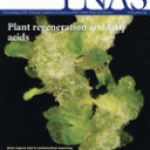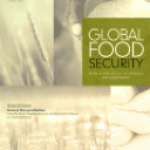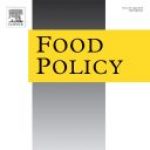Author: Prabhu Pingali

Book Review: The Evolving Sphere of Food Security
Read the article

The Hunger Metrics Mirage: There’s Been Less Progress on Hunger Reduction Than It Appears
Abstract As the timeframe for achieving the Millennium Development Goals (MDGs) came to an end in 2015, the United Nations lauded great progress, calling its MDG campaign the “most successful anti-poverty movement in history.” In its final progress report, the United Nations states that poverty...

Transitioning Towards Nutrition-Sensitive Food Systems in Developing Countries
Abstract A nutrition-sensitive food system is one that goes beyond staple grain productivity and places emphasis on the consumption of micronutrient-rich nonstaples through a variety of market and nonmarket interventions. A nutrition-sensitive approach not only considers policies related to macrolevel availability and access to nutritious...

The Bumpy Road from Food to Nutrition Security – Slow Evolution of India’s Food Policy
Abstract Food Policy, in much of Asia, has been slow to transition from its historic focus on staple grain self-sufficiency to a more integrated approach to nutrition security. Research and policy discussions continue to focus on hunger and calorie deficiency rather than on the need for a balanced diets to address chronic micronutrient malnutrition...

Women’s Empowerment in Indian Agriculture: Does Market Orientation of Farming Systems Matter?
Abstract This paper studies the relationship between the Women’s Empowerment in Agriculture Index (WEAI) and market orientation of farm production in India. This is the first time that the WEAI has been used in an Indian agricultural context and the first time that it is...

The Role of Agriculture in Women’s Nutrition: Empirical Evidence from India
Abstract In this paper, we establish a statistically important relationship between household agricultural income and women’s BMI using a five-year panel dataset of rural households drawn from 18 villages across five Indian states. Using within household variation over time, we estimate both the extent to...

Soil Health Characterization in Smallholder Agricultural Catchments in India
Abstract Soil health (SH) of managed lands in India is affected by anthropogenic activities such as nutrient mining, excessive tillage, and monocropping, which reduce the productive capacity of soils. A comprehensive SH characterization was conducted in 27 catchments in six districts of Jharkhand, India. Each...

Adapting the Women’s Empowerment in Agriculture Index to Specific Country Context: Insights and Critiques from Fieldwork in India
Abstract The Women’s Empowerment in Agriculture Index (WEAI) is a direct, multi-dimensional measure of women’s access to resources and decision-making in various domains of agriculture. However, several challenges characterize its use: adaptation of questionnaires to local agricultural contexts, modifications to index construction once underlying activities and adequacy thresholds are...

Women’s Empowerment and Nutrition Status: The Case of Iron Deficiency in India
Abstract In this paper we study the relationship between women’s empowerment in agriculture and their iron deficiency status in Maharashtra, India. This is the first time the Women’s Empowerment in Agriculture Index (WEAI) has been used in association with explicit measurement of medical biomarkers for...

Nutritional Outcomes of Empowerment and Market Integration for Women in Rural India
Abstract Over half of all women of reproductive age are affected by anaemia in India. In this paper we study the role that both household market integration and women’s empowerment in agriculture can play in determining women’s dietary diversity. Our analysis is based on primary...

